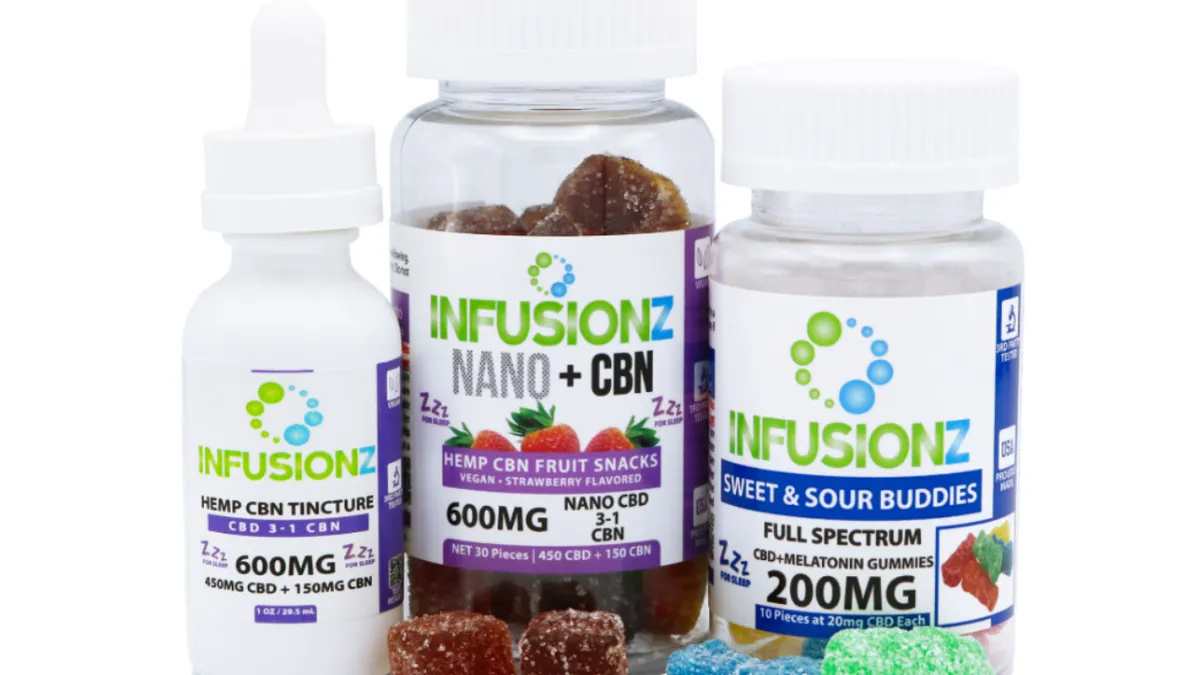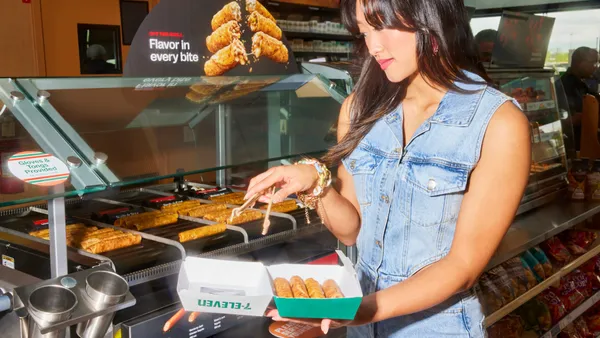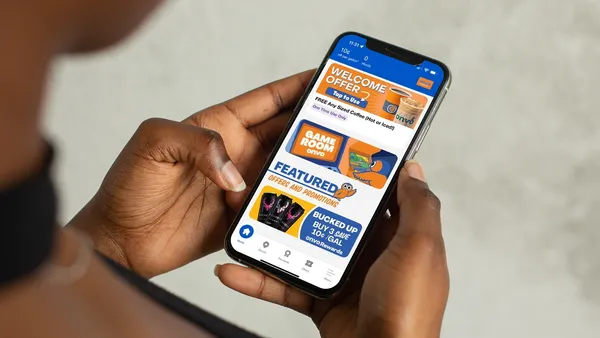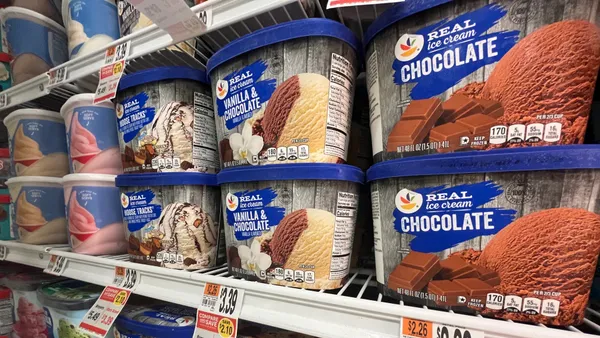Dive Brief:
- The Food & Drug Administration (FDA) has sent warning letters to five companies for “illegally selling food and beverage products containing cannabidiol (CBD),” the non-psychoactive component of marijuana, according to a Monday announcement.
- The warnings specifically mention that these companies are selling CBD-infused products that may be mistaken for non-CBD food and drinks and that some of them could appeal to children, according to the announcement.
- Although different from the FDA’s previous CBD warnings over false marketing claims, there’s little that c-store retailers selling more mainstream CBD products need be concerned about at this time, Jonathan Havens, partner at Saul Ewing Arnstein & Lehr, said in an interview.
Dive Insight:
In its warning letters, the FDA noted that customers confusing CBD-infused products for regular food and beverage items “may result in unintentional consumption or overconsumption” of the ingredient. The agency also said CBD-infused products that might tempt children — such as gummies, hard candies and cookies — “are especially concerning.”
Beyond these initial concerns, the FDA also said some of these companies are also illegally selling unapproved CBD products that boast false therapeutic claims, such as curing or treating various diseases — something the industry has been dealing with for years.
The companies named in the FDA’s warnings were 11-11-11 Brands; Naturally Infused LLC; Newhere Inc dba CBDFX; Infusionz LLC; and CBD American Shaman, LLC.
Havens noted that the FDA's heavy focus on youth appeal in the warnings suggests this will be a priority issue for the agency moving forward. But he also said the warnings over confusing CBD-infused items for regular food and beverage products is “disingenuous.” And even if this held water, none of the products would have enough CBD in them to be dangerous, he said.
“It’s a reach to me that the FDA is saying that,” he said.
So what do the recent warnings mean for c-store retailers currently selling or looking to sell CBD products? Not much — as long as products are not marketed as having therapeutic effects, don’t look or sell like regular food and beverage items, and don’t seem particularly appealing to children, Havens said.
“If you’re not selling aggressively marketed products or one made by one of these marketers, you’re probably ‘same-old, keep doing what you're doing,’” he said. “But it’s never a bad idea to evaluate what you're selling and if it’ll land in the FDA’s cross hairs.”
Havens also noted that many of the FDA’s warnings over CBD don’t apply to most of the companies in the segment — particularly the ones c-store retailers would be working with.
“By and large, the CBD industry is quite responsible, particularly if you’ve gotten into a major c-store outlet,” he said. “The FDA doesn’t focus on the leading brands in these warnings — they go after the bad actors. It’s like they’re trying to find the worst of the worst and say ‘that‘s what the industry is doing.’”











